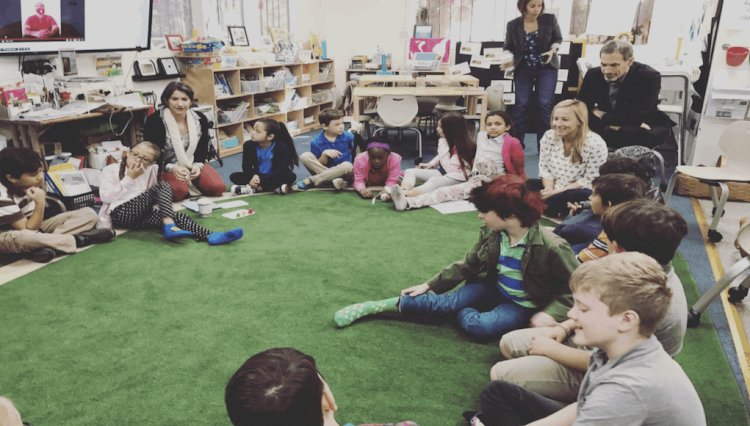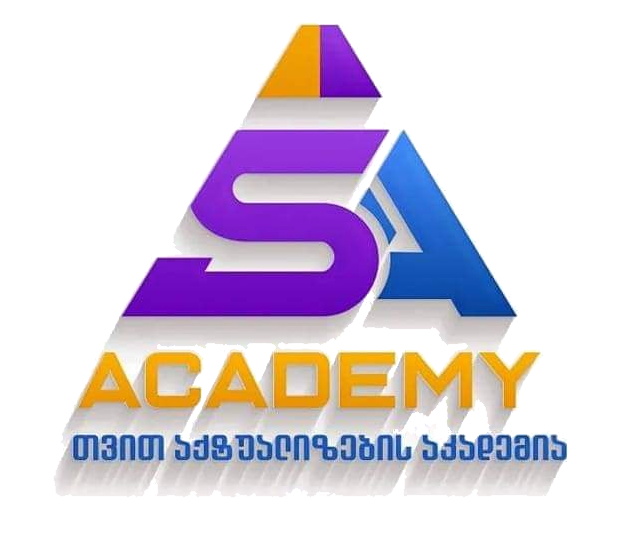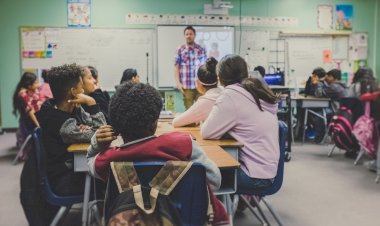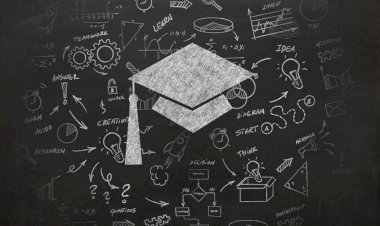THE ROLE OF PERSON-CENTRIC EDUCATION IN DEVELOPING THE LEARNERS’ HUMAN POTENTIAL

THE ROLE OF PERSON-CENTRIC EDUCATION IN DEVELOPING THE LEARNERS’ HUMAN
POTENTIAL
Sources: RCEELT-2017 THE 7th INTERNATIONAL RESEARCH CONFERENCE ON EDUCATION, LANGUAGE AND LITERATURE, Conference Proceedings, ISSN 2298-0180 April 21-22, 2017
https://ircelt.ibsu.edu.ge/wp-content/uploads/2017/05/IRCEELT-2017_Proceedings.pdf
Author: Nana Aleksidze
Abstract
The 21st century is the century of challenges, competition and rapid development. The pace of life is accelerated more than ever. Education is a primary need in this era of globalization. Education not only gives insight, but also grooms the personality, sophisticates moral values, add knowledge and gives skill. One of the important tools for personal development is knowledge gained through education. Human potential is immense, there is education which can help learners discover and develop their innate potential and talent. The only means to reach the goal is effective person-centric education. Only education can awake the hidden potentials and transfer the mere human into the “high human being “ by giving them healthy knowledge and creating them as healthy, sensible, reasonable human beings with intense and endless human recourses.
Keywords: Learning, Human potential, Motivation, Education
Introduction
“In this era of globalization and technological revolution, education is considered as a first step for every human activity. It plays a vital role in the development of human capital and is linked with an individual’s well-being and opportunities for better living” (Azhar et al, 2013). One of the important tools for personal development is knowledge gained through education. Knowledge is power, and power is unfortunately something that is hard to come by these days” (Rowan, 2014). The role and significance of education is as high and superior as the goal it serves. Only education can awake the Human potential. There is education which can help learners discover and develop their innate potential and talent. According to Abraham Herald Maslow (1970) “we tend to take for granted the blessings we already have, especially if we don’t have to work or struggle for them”. (22). Making a person the center of the interest and tailoring the learning process accordingly becomes of a great importance nowadays. Learner-centered education, also known as person-centered education, broadly comprises those methods of teaching that shift the focus of instruction from the teacher to the learner. This type of learning aims to develop learner’s autonomy and independence. It emphasizes each student's interests, abilities, and learning styles, develops the skills for self-growth and for discovering the self-potential, placing the teacher as a facilitator. Humanistic Education greatly concerns the approaches and paradigms of the person-centered education. This kind of education is an approach to education based on the work of humanistic psychologists, most notably Abraham Maslow (1970) and Carl Roger (1975). The basic concern of the humanistic theory is the:
- Human potential oriented for growth
- Personal freedom of choice
- Motivations and feelings
Problem statement and the research questions
The challenges of our century put the questions of more attention toward the humans:
- Why is education so important in our life?
- Is education for everyone?
- What are the goals of education?
- How can one discover and develop his/her potential?
There are several important life factors to answer these questions:
- For a happy and stable life: Education is a must for a promising and secure future and a stable life. The more educated one is, the better career options he/she has!
- Makes a person self-dependent and confident: Education also makes one wiser so that he/she can make their own decisions. Education gives a person the confidence to express his/her views and opinions.
- Makes one well aware of his/her rights; he/she gains the awareness of the law and his/her responsibilities towards the society. Hence, education is an important factor which contributes to social harmony and peace.
- Society: Education helps a person to become an active member of the society and to participate in the ongoing changes and developments.
- Equality: Education is a must if the society wants to do away with the existing differences between different
- Social classes and genders.
- Self-evaluation and skills of judgment: Education encompasses teaching and learning specific skills and also something less tangible, but more profound: the imparting of knowledge, good judgment and wisdom.
- Personal Development: It helps to develop one’s perspective on the world around and pushes the person to think both creatively and conceptually about many different subjects (Rowan, 2014).
- Individual growth: Education helps people grow as individuals by opening their minds to many things that one has not been exposed to before. Education helps to build social problem solving, decision-making and creative thinking skills.
- Culture: Education has as one of its fundamental goals the imparting of culture from generation to generation.
The important factors which have a great influence on a person’s competent learning process are:
- Parent-child relationship: Parents and families develop warm relationships that nurture their child’s learning and development (Lerner & Castellino, 2002).
- Teacher-learners relationship: Positive teacher-student relationships promote the development of students’ learning skills and draw them into the process of acquiring knowledge and promote their desire to maintain their potential (Rimm-Kaufman, 2017)
- Social Factors: Society plays a significant role in education. The values, morals, and principles of a society will create an education system that upholds the same values, morals, and principles.
- Economic Factors: The social status also dictates the kind of education people can obtain. The cost of education can be correlated with the social system that is, as a person goes up the social classes, so is his/her capability to get education. In gist, one can get the best education if one can afford it.
- Peer relationships: Harmonious peer relationships provide the basis for developing social and emotional wellbeing and augmenting the learning process. How a person formulates self-concept, self-worth and self-efficiency more or less depends on the kind of peer relationship one has.
When the issues concern the human potential development, not only the person’s own self, but also his/her attitudes towards others are to be taken into consideration:
- Cultural /ethnical factors: Education has this function of cultural transmission in all societies. Cultural tendencies impact the way children participate in education.
- Gender: The issue of gender inequality is one which has been publicly reverberating through society for decades. The problem of inequality in employment is being one of the most pressing issues today (School work helper, 2017).
The humanistic approach places a great deal of emphasis on students’ choice and motivation. According to Maslow (1970),” people can choose in accordance with their own taste and appetite, their character of judgment, the youngster chooses the motivation to which he will attribute the behavior accord with his generalized optimism or pessimism” (Maslow, 1970).
The benefits of the person-centered learning are that the teachers have:
- The ability to combine an interest of the learner with a project.
- More fun for the student
- More tailored materials and activities to their interests
- More encouraging teaching
- More motivated learners
- More productive lessons
The positive outcomes of the humanistic approach:
- Students are more responsive to the material being taught
- Students will take more out of each lesson due to an instructor focus on the student’s interest and learning styles, not just the material to study.
- Curriculum reaches a mixture of learners, from schoolchildren to adults, or even mentally disabled. Curriculum makes a positive impact on students going on to a higher level of education.
- Effectiveness which students will gain an increase in the amount of knowledge they are gaining from their learning efforts.
- Viability, when students are becoming influenced with a variety of information and ways to learn the material.
- Engagement: students are staying involved and active in the learning process. They are not merely becoming side-line learners, but they are taking a proactive role in their education, and enjoying the process.
This approach requires the developing of the generic skills of:
- Comprehension and critical judgment;
- Performing practical life skills;
- Learning how to learn;
- Generating problem-solving skills;
- Attitudes and Dispositions;
- Ability to make decisions;
- Willingness to take responsibility for one's decisions;
- Cooperating with others.
To maintain the productive teaching outcome, the educator has to:
- Be a careful observer
- Take the time to get to know the child
- To encourage the student to be engaged in learning
- Educational process should maintain right ways to prosper the hidden potentials in every pupil.
- Educators should make the relevant environment for proper perception of the reality.
- Education should motivate pupils to ask the most important questions to them and to find the answers.
- Educators should consider the individual differences and to make the right border between common and individualism.
To be successful, students must find instruction motivating and meaningful. Interest-based learning is opposite to the teacher centered education. In a student-centered learning space, students choose what and how they will learn, also how they will assess their own learning. This is in contrast to traditional education, also dubbed ‘teacher-centered learning’, which situates the teacher to have the primarily ‘active’ role while students take a more ‘passive’, receptive role. In a teacher-centered classroom. Teachers choose what and how students will learn, also how students will be assessed on their learning.
Recommendations
The recommendations deal with problem solving, forecasted outcomes and suggested actions to implement.
Problem solving:
- Maintaining the person-centric approach in the educational process;
- Maintaining sound and healthy relationship;
- Maintaining the self-deciding ability;
- Developing the win-win strategy and reaching the synergy.
Forecasted outcomes:
- Having more motivated, confident and mobilized students;
- Having more mobilized and motivated teachers;
- Using innovative activities;
- Being more close to the students;
- Creating more acceptable and suitable environment;
- Being more person-centric and human;
- Creating more acceptable interpersonal relationship;
- Gaining good results through relevant communication and motivation.
Suggested actions to implement:
- Teachers and psychologists should work together and point out the core questions and problems of the educational process;
- Making education more person-centric (through the diverse lessons, activities, questionnaires, periodical interviews and dialogues);
- Getting more professional and trained teachers and psychologists;
- Having active communication with the parents through periodical meetings, interviews and activities;
- Making positive and relevant environment for students, for teachers.
Conclusion
Person-centric education, based on the interest-based learning is not really new. Parents and educators have all known for a long time that students do better, if they are interested and engaged in a topic. Now we just have to encourage educators to practice this form of teaching, and learners will benefit. One can change everything for one’s own good by means of quality and person-centric education. Education which will give youngsters a free choice for future actions and help them to create their own goals and missions. Teachers should take the responsibility for their decisions and create the effective goal oriented, healthy and educated society. Only education can awake the hidden potentials and transfer the mere human into the “high human being” by giving them healthy knowledge and creating them as healthy, sensible, reasonable human beings with intense and endless human recourses (Maslow, 1970).

















